Editorial: On how we vote in BC -- will it change, or not?
Come the next BC election, will we have Proportional Representation (of some kind) or business-as-usual with First-Past-the-Post? A lot of ink and pixels have been swirling around the news and opinion media on the topic. It still bears more examination, given the disparate views expressed. Let’s do some examining, and be better prepared for that referendum this fall.
Opposition to Proportional Representation:
First, let’s look at who opposes Proportional Representation (Pro-Rep), and their stated reasons for that opposition. Let’s also look at he experiences of other countries using Pro-Rep.
One loud opponent of Pro-Rep is Bill Tieleman, a former NDP strategist. He bases his opposition on the fear that Pro-Rep “empowers the far right” and would open government to control by extremist parties, fringe parties, radicals. Is that an evidence-based fear?
He wrote an opinion piece for The Tyee published on November 10, 2017. In that article, he cited an apparent rise in far-right extremism, and illustrated his points with a link to an outdated Guardian article (March 2, 2017) on the then-upcoming Netherlands elections, which predicted that the Islamophobic, far-right Dutch politician Geert Wilders and his party would “emerge as the largest party” in the March 15, 2017, elections. If he had used the actual results of the elections instead, the fear factor would have diminished; Wilders did gain seats, but not as many as forecast. The article predicted that the incumbent Prime Minister Mark Rutte’s party would lose about 30% of its seats and end up with from 23 to 27 seats; instead, the party has 33 seats, and Rutte is still Prime Minister.
Some Pro-Rep countries have relatively low thresholds to enable political parties to gain seats. The Netherlands has a very low threshold; less than 1% of the vote can gain a party a set. Israel, with a dizzying array of political parties, has a threshold of 3.5% — still fairly low, and a relatively large number of Israel’s numerous parties achieve representation. Norway uses a 4% threshold.
New Zealand’s experience
New Zealand voters opted to move from FPTP in 1993, and had their first Pro-Rep election in 1996. New Zealand has a threshold of 5% of the vote, or at least one constituency, to be eligible for representation. That tends to discourage the dreaded radical, extreme element, and BC could easily adopt the same threshold.
New Zealand also had fear-mongering opponents of the change to Pro-Rep; an article in Wikipedia on the issue reports, “Many senior politicians in both major parties and businesspeople were opposed to MMP: Bill Birch, then a senior National Cabinet Minister, had said MMP would be "a catastrophic disaster for democracy", and Ruth Richardson, former Minister of Finance in Jim Bolger's government said MMP "would bring economic ruin". Peter Shirtcliffe, chairman of Telecom New Zealand at the time and leader of the CBG, said MMP "would bring chaos".[5]”
Have those dire predictions come true? Apparently not. Professor Jonathan Boston of New Zealand has written a book on it, and has concluded that Pro-Rep has yielded stable governments, and has resulted in fewer lurches toward extreme policy. New Zealand voted again on its electoral system in 2011, and voters decided to retain their Pro-Rep system by a wide margin.
BC’s Liberal Party has just chosen a new leader: Andrew Wilkinson. Wilkinson, like Tieleman, opposes Pro-Rep. He claims that it will result in voters “not knowing who to reach out to” because, he claims, they won’t directly elect their MLA. One wonders which system Wilkinson is thinking of, because those things are not necessarily true, and Simon Fraser University political scientist David Moscrop disagrees nwith him. Wilkinson’s main (or only) argument against Pro-Rep may well be that he fears it would benefit the Green Party and the NDP, as he pointed out immediately after his election as party leader ̶ though there have been times when it would also have benefited the Liberal Party more.
One argument often heard (but not substantiated by any facts) is that rural voters would lose some representation. Under some systems, that could possibly be the case, but it’s not a necessary effect of Pro-Rep. Under FPTP, many rural voters are unrepresented now because they have no chance of an MLA who speaks for their values.
Support for Pro-Rep
“Fair Vote Canada” is a not-for-profit that advocates for Pro-Rep, and they refute the argument that it would somehow disadvantage rural residents, at this page.
If you’re concerned about the effects of Pro-Rep on fiscal responsibility, the economy as a whole, debt, income inequality, and taxes, check out the research cited here.
If you’re confused by talk about “ranked ballot” as if it were a variety of Pro-Rep (it’s not), read this section for clarification. Hint: ranked ballot can be used in Pro-Rep systems. It can also be used in systems that are not proportional at all.
For another page with simple explanations of models of Pro-Rep, click this link.
As for the fear that Pro-Rep could open the door to far-right extremists, some people have pointed to the fact that the US could now be said to have ended up with a far-right extremist leader, chosen by FPTP and with a little under half of the popular vote.
A system designed for BC
Fair Voting BC, another not-for-profit group that favours Pro-Rep, describes Rural-Urban Proportional Representation (RU-PR), now re-named “Flexible District PR,” a system designed for BC, to ensure good rural representation; it is described in detail on this page. The description begins by showing the actual results from the last election on Vancouver Island, and then showing what the results would be with basic RU-PR, and then shows how including a couple of top-up seas would bring the proportionality very close to the total vote results. The authors say that with a RU-PR system, “ . . . the final group of candidates elected would broadly represent the diversity within each electoral district and would be the individual candidates most supported by the voters.”
Unfortunately, the BC government has not included any mention of this proposal in its survey materials seeking input toward the planned autumn referendum; if a resident wants BC to consider RU-PR, he or she must include that request in some of the open-ended questions in the survey.
Pro-Rep nations
What other major, familiar nations use Pro-Rep? Well, besides New Zealand and Norway, there’s also Denmark, Sweden, Finland, Germany, Switzerland, Belgium, and Luxembourg. And many more.
FPTP nations
What other major countries use FPTP? A minority. There’s Canada, the US, India, and the UK; Belize, Pakistan, Malaysia, and 18 African nations also use FPTP. There are 212 countries, and 68 of them – fewer than a third – use FPTP.
How Norwegians do it
Here’s a link to a very readable article by a Norway-born American living in Anchorage, Alaska, explaining the Norwegian electoral system:
http://www.norwegianamerican.com/featured/how-norwegians-do-it-national-elections-in-norway/
My views:
I’ve done much reading and cogitating on the differences between Pro-Rep and FPTP. FPTP is a fine system if there are only two political parties (but it's still susceptible to sleaze and skullduggery by means of gerrymandering). Otherwise, the only advantage of FPTP is that the ballot is simpler than a ballot for Pro-Rep, but on the other hand, examples of Pro-Rep ballots I’ve seen are very easy to understand. I don’t regard it as an advantage that FPTP gives “majority” governments to parties that get only 40% of the vote. I don’t regard it as an advantage that with FPTP a party supported by over 16% of the voters can end up with less than 3% of the seats, or none at all.
What do I want? I’d like a change to a Pro-Rep system. Why? I’d like to see politicians have good reason to be civil to each other, instead of wasting their efforts (and taxpayer’s money) on nasty attack campaigns, opposing proposals for the sake of hurting another party rather than because they think the proposal has no merit. I’d like to see that pendulum effect end – the one that sees successive governments busy undoing whatever the previous one did; to me, that’s a sign of unstable governance, and it happens here. I’d like our governments to act for the long-term greater good of our society, not just for the greater good of whichever political party is in the driver’s seat for a term. I’d like effective voices in our legislature representing the values of most of the voters, instead of only 40% of us.
With Pro-Rep, there would be little or no incentive for gerrymandering – the strange plotting, shaping and skewing of electoral districts to favour a win by the party in power; see illustration below.
Will Pro-Rep solve all our problems? Of course not; life is more complicated than that, with too many other factors in the mix, but it would very likely improve our politics in several important ways.
Let’s do what New Zealand did. New Zealand is doing just fine, and they’re happy with Pro-Rep; let’s see if we can be happy with it too.
How gerrymandering works: on the right-hand side, districts have been gerrymandered to engineer a majority of seats with only 40% of the vote.



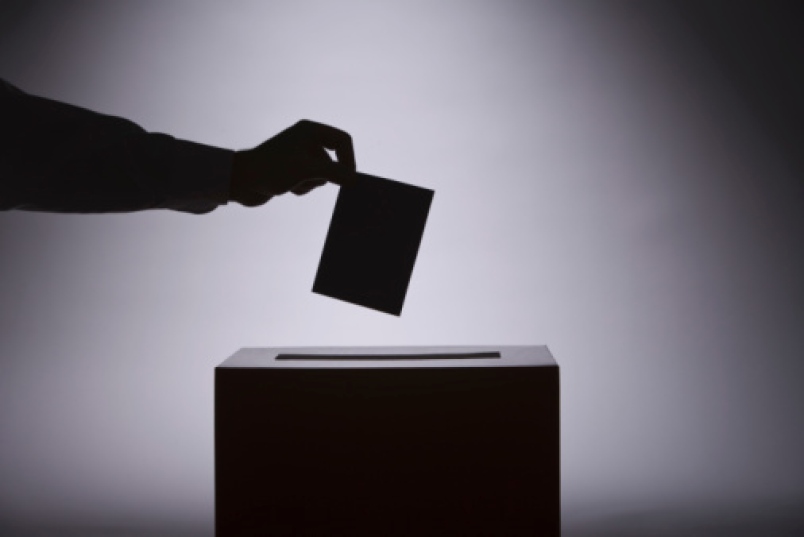
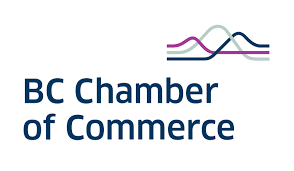
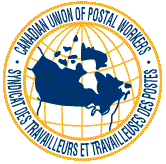
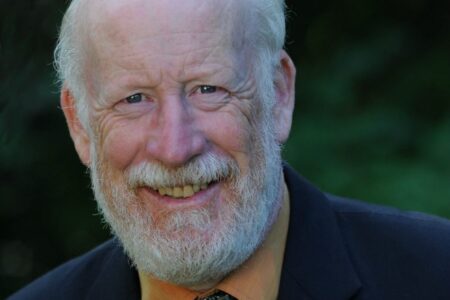

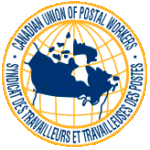


















Comments